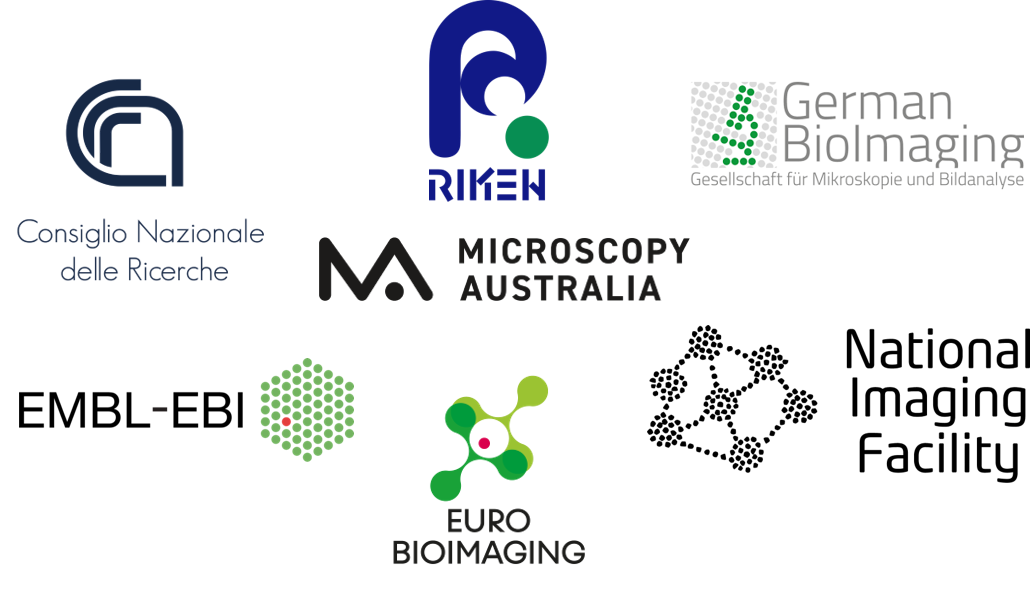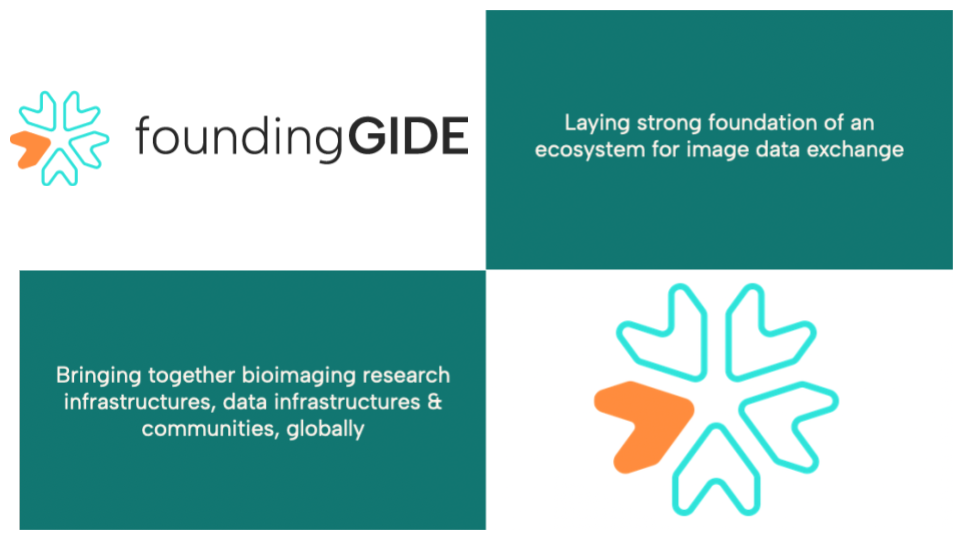GerBI partners in the newly funded foundingGIDE project
Press Release for the start of foundingGIDE:
foundingGIDE – Laying the foundations of a Global Image Data Ecosystem
foundingGIDE is a Horizon Europe-funded project coordinated by Euro-BioImaging ERIC that will build strong foundations of a Global Image Data Ecosystem (GIDE) for image data exchange based on global coordination of technical developments among infrastructures and communities.
While being one of the fastest growing types of research data, imaging data lacks established standards, making compatibility among regional and national data resources a challenge. Although standardisation efforts are being made by various community initiatives, the necessary coordination of development activities is missing leading to a fragmented landscape with lack of awareness about existing solutions among researchers, and limited understanding of community needs by funders and policy-makers.
To address these challenges, the foundingGIDE project brings European research infrastructure and image data resource owners together with their counterparts from Australia and Japan to develop common recommendations for ontologies and metadata, together with the wider global bioimage data community. Through their joint forces and expertise, the foudingGIDE partners aim to make bioimage data FAIR and shareable across the globe, and to consolidate a network of researchers and communities that support an ecosystem of open image data sharing.
Working towards the vision of a shared global image data ecosystem, this project will:
- Establish coordination among global open bioimage data resources
- Increase resource interoperability
- Engage with and provide guidance to community initiatives and end-users
- Plan for sustainability of developed solutions
- Build an ecosystem for new interlinked resources to grow
The foundingGIDE project brings together an international consortium of seven partners that provide the necessary and complimentary framework required to establish the basis of a coordinated GIDE. In the field of open life science image data, Euro-BioImaging ERIC plays a central role in data generation, service provision, and user and community engagement, while EMBL-EBI, the hosting institution of the BioImage Archive and IDR, holds a key position as the central data repository. Additionally, increasing national efforts, like German BioImaging’s participation in the national consortium, NFDI4BIOIMAGE, to improve research data management for microscopy and bioimage analysis, addresses the needs of the national community. Key expertise in specific fields such as experience in research, clinical and preclinical image data management at Australian National Imaging Facility and Microscopy Australia, and specialised expertise of RIKEN, the host of SSBD database, on dynamic image data and imaging ontologies, are held at the partners and will be incorporated into the project for the benefit of the whole community.
The project efforts will result in a consolidated landscape for image data sharing that will be built on community approved ontologies and metadata standards allowing interoperation between image data resources. This effort will serve as a blueprint for future national, regional and global initiatives to follow in order to incorporate into the data sharing ecosystem. Individual researchers will benefit from practical implementations, like the image search and analytics portals as well as guidelines for FAIR image data management. Through its centrally coordinated efforts towards GIDE, foundingGIDE will provide a necessary framework for bioimage data to grow into a democratized resource enabling innovative research in Europe and across the globe.
For more information about the project and to follow it as it develops, please visit our website www.founding-gide.eurobiomaging.eu or follow us on social media (X: @GIDEproject; LinkedIn: www.linkedin.com/company/foundinggide/)


foundingGIDE has received funding from the European Union’s Horizon Europe research and innovation programme under grant agreement number 101130216. Views and opinions expressed are however those of the author(s) only and do not necessarily reflect those of the European Union or the European Research Council Executive Agency. Neither the European Union nor the granting authority can be held responsible for them.


